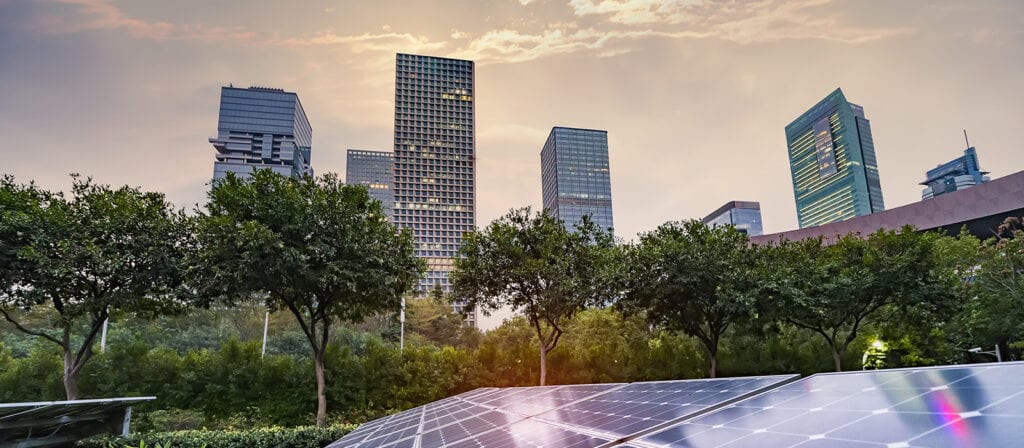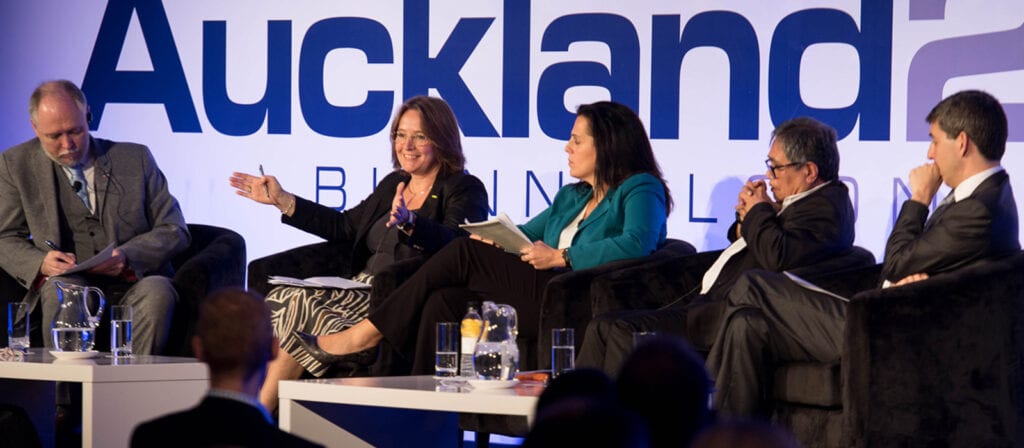The aim of the A4S Annual Summits is to be unique global meetings for business leaders to catalyse action to create resilient, sustainable businesses and economies globally. ICMIF and its members have been leading the charge in the sustainability sector for over 25 years. The increasing momentum in sustainability is helped undoubtedly by the growing political desire to ‘build back better’ in the aftermath of the Covid-19 pandemic and in the run up to UN Climate Change Conference COP 26, which is due to take place later in 2021 in Glasgow (UK).
Embedding and benchmarking the SDGs
The United Nations 17 Sustainable Development Goals (SDGs) should play a significant role in a business’s sustainable journey. The panel agreed on the importance to embed the SDGs into overall business strategy and everyday decision-making.
Reale Mutua Group (Italy) was formed in Turin 192 years ago, out of a code of ethics translated from the principles of mutuality that involve integrity, people centricity, responsibility, cohesion and innovation.
What is important now is that reporting on the SDGs is given equal prominence with the financial results of the business and becomes mainstream. Benchmarks also needed to measure against each SDG in the same way as the benchmarking financial measures.
ICMIF is working with its Supporting Member Swiss Re and with the UN Environment Programme Finance Initiative Principles of Sustainable Insurance (UNEP FI PSI) on a new initiative, developed primarily by Swiss Re, called the Insurance Sustainable Development Goals (iSDG) Calculator that will hopefully keep businesses ‘honest’ and help measure businesses’ SDG performance against the benchmark iSDGs.
Sustainable investing: Green bonds, climate-smart and impact investments
If action is not taken to stop climate change and reduce global carbon emissions, insurance would simply not be an affordable commodity moving forward.
Sustainable investing incorporating environmental, social and governance (ESG) criteria into investment decision is essential: not only as a means of ‘doing the right thing’ and ‘leaving no-one behind’; but is also part of the ethos and purpose of the mutual and cooperative sector.
In response to this, Folksam (Sweden) is exerting pressure as an investor to try and encourage companies to reduce their carbon emissions instead of the simpler method of disinvesting in those companies that refuse to decarbonise. The failure to act could mean these companies become ‘stranded assets’, putting investor portfolios at huge risk in the future. As a founding member in 2019 of the Net-Zero Asset Owner Alliance, Folksam is committed to reducing the carbon emissions of its investment portfolio to net-zero by 2050 in alignment with the Paris Agreement.
However, investors should not expect to have to compromise on returns from their savings and investments investing in these decarbonised businesses. At The Co-operators (Canada), its Impact Investing returns – of which almost 21% of all invested assets are classified under – showed returns consistent or better than the overall investment portfolio. Impact Investing is not ‘charitable investing’.
At Folksam, its latest unique strategy is to drive demand for green bonds from the investor perspective. Its approach had included getting a bank to issue a green bond so that the proceeds could be invested in building flood land defences in the southern part of Sweden to protect the local community. This is a ‘win-win-win’ situation with their members’ pension funds earning investment returns on the green bond; the community is protected from floods and ensuring insurance is available and the insurance company, in this case Folksam, pays out lower insurance compensation claims. This is a totally unique way of looking at investments and very inspirational as it brings resilience and prevention to the centre of decision making.
Folksam is also actively engaged in a change within the industry towards a ‘circular settlement flow’ where damaged objects such as cars, phones, computers and bicycles are repaired and members receive an equally remanufactured item in return. In this way, Folksam has saved 3,200 tonnes of CO2 emissions by incorporating this circular claim settlement scheme and almost the same again in terms of waste because of the items being reused.
As mutuals and cooperatives are not driven by short-term profit maximisation, the Reale Group can actively engaged in the development of life insurance products that generate socio-environmental impacts, as well as sustainable investment strategies.
In 2014, ICMIF CEO Shaun Tarbuck spoke at the UN General Assembly and committed the insurance industry to investing USD 400 billion in climate-smart investments by 2020. As of the end of 2019, ICMIF members alone had invested USD 286 billion in climate-smart investments; and it was hoped ICMIF members alone will surpass the USD 400 billion target when its Sustainable Investment Survey is completed again in 2021.
Sustainable Reporting: “what gets measured, gets done”
The Financial Stability Board (FSB) created the international initiative the Task Force on Climate-Related Financial Disclosures (TCFD) so that the financial sector can account for climate-related financial issues and disclose them accordingly. In the UK, this will become mandatory for many large companies and financial institutions by 2025.
The Co-operators is a world-leading expert in this area, having produced an Integrated Report since 2016 and having reduced its carbon footprint by 80% since 2010 and the cooperative is committed to being carbon neutral by the end of 2020.
It is essential that there is a thorough understanding of the threats of climate change and the risks and opportunities posed. The TCFD helps raise investor and consumer awareness on this pressing issue.
The Reale Mutua Sustainability Report, to be issued shortly, will be based on identifying what were the material issues to the company and relevant stakeholders and how these are closely linked to the SDGs such as those relating to climate change; responsible consumption; sustainable investments; and product, people and diversity.
Shifting from protection to prevention
On the liability side, the insurance business model needs to look at the move from protection (indemnity) to prevention (resiliency) as it adapts to change with every increasing risk within the industry: something that will increasingly be driven by risks associated with climate change.
As these new risks emerge and rise for insurers, so will the cost of insurance creating an affordability gap. Communities need to understand the risks they face because at a 2-degree climate scenario change, many people in many places and especially in vulnerable, marginalised populations will become uninsurable.
In Canada, examples of this includes decisions to allow building or rebuilding in flood land or allowing buildings to be built with materials that will be destroyed because of climate change, all ultimately impact the cost of insurance and creating a gap in affordability.
As a society, there is a need to get all stakeholders in the insurance cycle – Governments, insurers, regulators and lenders – to really build a system of resilient decision making.
It is an essential journey that all stakeholders must play a role in, embracing working together in partnership towards a resilient society and changing the planet for the better.
Session panellists:
- Virginia Antonini, Group Head of Sustainability, Reale Mutua (Italy)
- Ylva Wessén, President and CEO, Folksam (Sweden)
- Karen Higgins, Executive Vice President and CFO, The Co-operators (Canada)
- Shaun Tarbuck, Chief Executive, ICMIF, moderator





